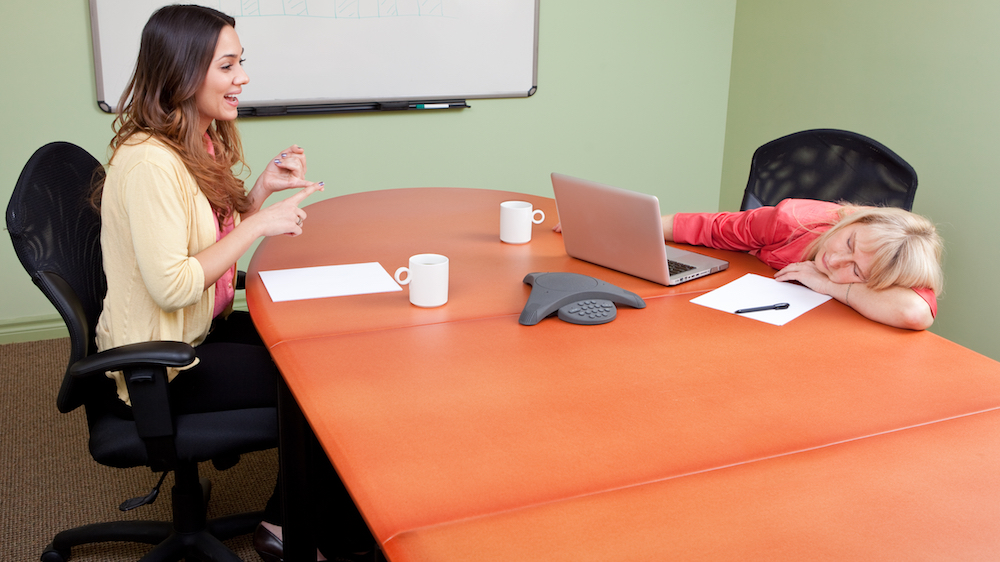Researched commissioned by Altodigital has revealed that over-run meetings cost the UK economy a staggering £582 million a week, with 95% of those questioned admitting that they have meetings that regularly over run, and more than half (53%) agreeing that some could definitely have been conducted more efficiently.
The poll of 1000 office workers from a range of sectors across the UK were questioned to help Altodigital better understand how workplace meetings can be adapted and made more efficient to increase productivity.
The study has revealed that more than two thirds (68%) of those questioned regularly hold at least five meetings a week, with a surprising 70% of respondents revealing they often over run by up to half an hour. This was calculated against the average annual wage and multiplied by the current working population to work out its effect on the economy.
The study also revealed that the majority of UK meetings are anything but efficient, with 28% of respondents regularly attending ‘unnecessary’ ones and almost half (43%) saying that they have been to a meeting and actually not contributed anything at all.
It seems as though the meeting has become an excuse to procrastinate, as nearly a tenth of people instigate a meeting with a co-worker to avoid doing other work and 15% even said they have attended a meeting hungover. A quarter of respondents even admit to spending a third of their meeting time on general chitchat and enjoying refreshments.
It’s often not just the meeting itself that can be a waste of productivity – the travel time is also a major factor. More than a third of UK employees questioned (34%) said they travel between one and six hours to attend a meeting, with 66% of respondents driving instead of taking the train, which would enable them to work en route.
Though unproductive meetings are considered to be a drain on UK businesses, it isn’t something that is regularly tackled, with nearly a quarter of people (23%) admitting that they don’t use technology at all; only 38% use conference call facilities and 35% video conferences – shockingly low numbers in this day and age. However, the opportunities advancements in technology can offer were recognised, with more than a third (35%) of respondents agreeing making more use of available technology would increase their efficiency.
Top tips for helping to maximise meetings included:
- Holding meetings at a desk instead of meeting rooms (29%)
- Setting a timer to stick to pre-agreed meeting times (24%)
- Implementing refreshment-free meetings (23%)
- Taking a leaf out of Facebook’s Mark Zuckerberg and holding meetings standing rather than sitting (18%).
Alistair Millar, Group Marketing Manager at Altodigital said: “Unproductive meetings are an element of business that affects every sector and industry, but is something that can be easily avoided. Using office technology such as video conferencing, conference calls and interactive smartboards, as well as using some of these top productivity tips, could increase the speed and efficiency of meetings, not to mention cut down on extended periods of travel time.
“Although often unproductive, meetings are necessary to build strong relationships and keep up to date with particular projects, and we hope that our research will help people to put productive measures into place and discover how we can help the UK become more efficient and spend time doing the work that will make money – rather than holding meetings about it.”















